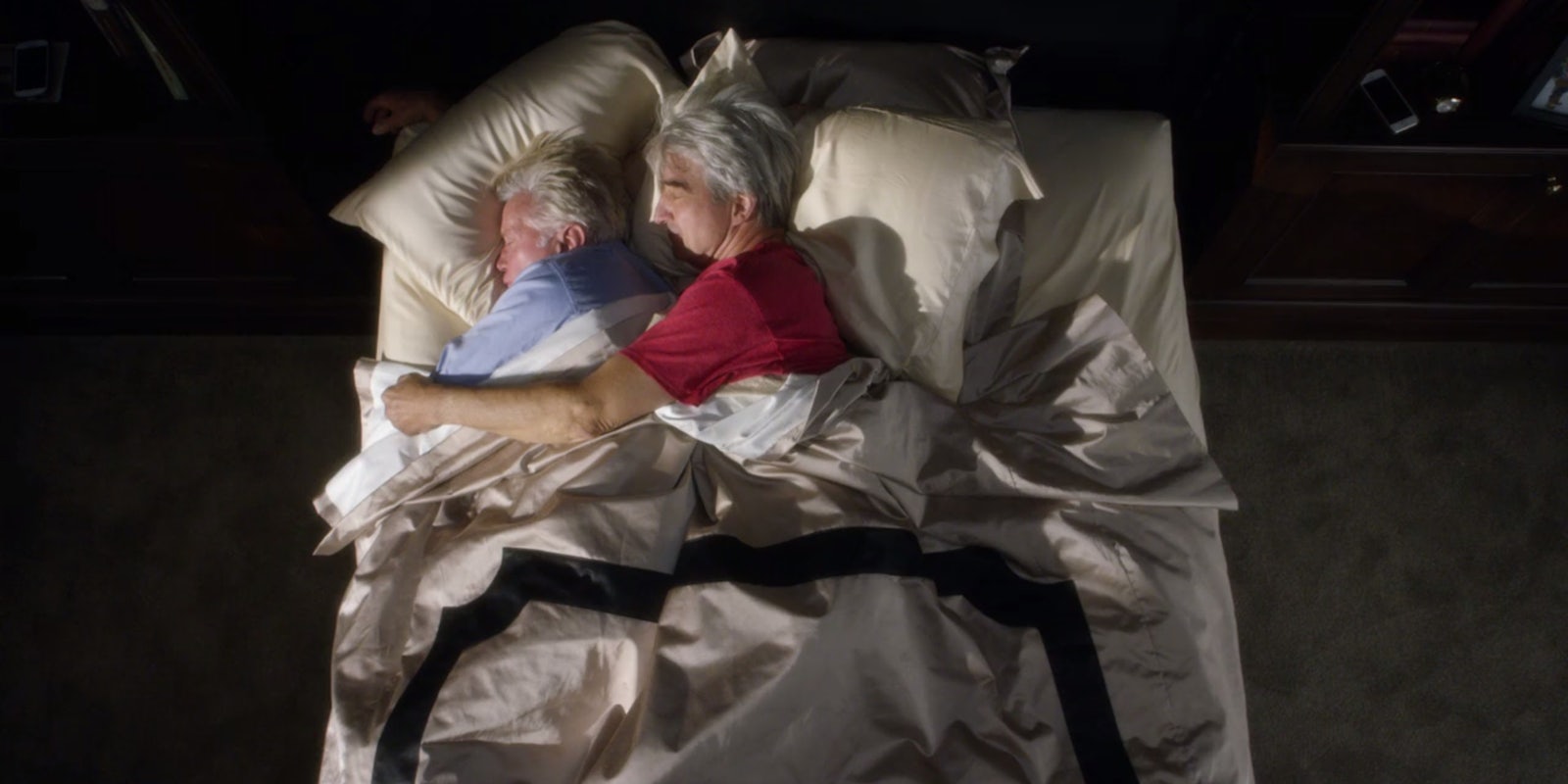Chances are that Grace and Frankie isn’t made for you. It’s made for those pining for a 9 to 5 cast reunion, those with memories of a Jane Fonda who did things other than shout about her sex life and those to whom homosexuality is still a titillating taboo. Basically, those who have long left the 18-to-34 demographic behind and would now look at a poster like this and rather than retch, nod approvingly: “You tell her, Diane, those kids don’t even know that they’re born!”
You are probably not one of these people, but if you are, there is no need to be ashamed. It will happen to all of us, and after all, it’s a great time to be alive. Why? Because companies really want you! Netflix is prepared to create shows just for you! When even babies are streaming Doc McStuffins on their iPads, you guys are the last untapped market.
And it’s this obvious neediness that makes Grace and Frankie confusing. It’s an odd opening salvo for what is essentially Netflix staking its claim on older viewers. So, sure, the stockpiling of decomposing star power makes sense. But did they have to make it so depressing?
It’s not an exaggeration to say that the first episode—in which both Grace (Fonda) and Frankie’s (Lily Tomlin) husbands (Martin Sheen and Sam Waterston) announce they have been in a relationship for 20 years, and are now leaving their wives to get married—is one of the least amusing episodes of a sitcom ever. It features the breakup of two long-term, seemingly stable relationships and the realization by the wives that they have been lied to for decades and now face a life apart from people that they considered their best friends.
None of this is played for laughs. When Tomlin haltingly tells Waterston’s Sol as she guides him to the sofa to sleep that “I can’t remember the last time I slept without you. I know I’ve done it … but I can’t remember,” it is heartbreaking. And as Fonda confides in Tomlin how she should have known as it was “right there, in front of my face” (Dick Francis and photos of cousins George V and Tsar Nicholas II are gay giveaways, apparently), you get an inkling of the true pains of aging: the contemplation of wasted time and the realization of diminishing possibilities.
It does get funnier. Later episodes see the show grow sharper and snappier, but throughout there remains this overhanging fug of depression. Jokes that ordinarily would be flippant are now “brave.” It’s a tone not helped by the retention of Sheen and Waterston—constant reminders of that first, painful episode—as central characters and the inevitable central plotlines involving divorce, division of assets, and “getting on with life” as a necessity. Nor is it helped by the quality of Tomlin and Fonda, creating characters capable of possessing histories, as opposed to the normal lightweight sitcom stock who reset at the beginning of every 22-minute block.
You’d think that they’d know that you catch flies with honey, not with depressing studies on loneliness and aging.
That the opener is allowed to cast such a shadow is a dramatic misstep by the show’s creators. One of them, Marta Kauffman, has mentioned that the Netflix deal allowed them to conceive Grace and Frankie as a series rather than as just a pilot, self-contained and bullet-proofed for development hell. Security is a fertilizer for misplaced grandiosity. It’s an observation which sort of explains how the first episode came to take the shape of the third act of a film, all resolution and acceptance, but not why Netflix would allow it to remain as such. You’d think that they’d know that you catch flies with honey, not with depressing studies on loneliness and aging.
But who knows? Perhaps the targeted demographic are masochistic, wallowing in their own fears as they drift through the second half of their lives. They do love poring over the obituaries, after all. But you’re probably not one of them, and fatally for a comedy, Grace and Frankie made me feel glum. I can’t imagine how I’ll feel in 25 years when this is the sort of thing I’m expected to watch.
Screengrab via Netflix
